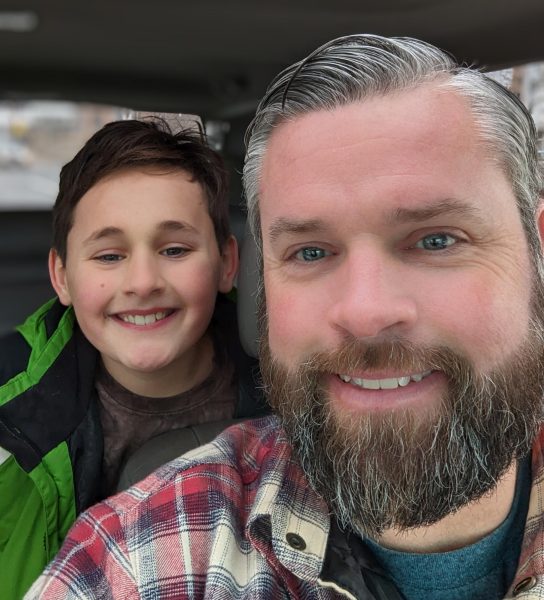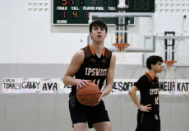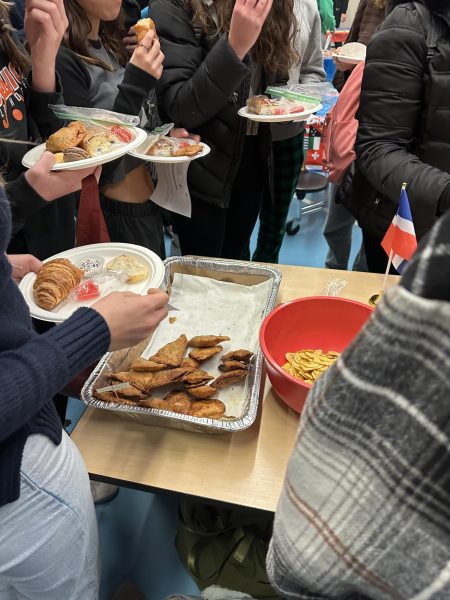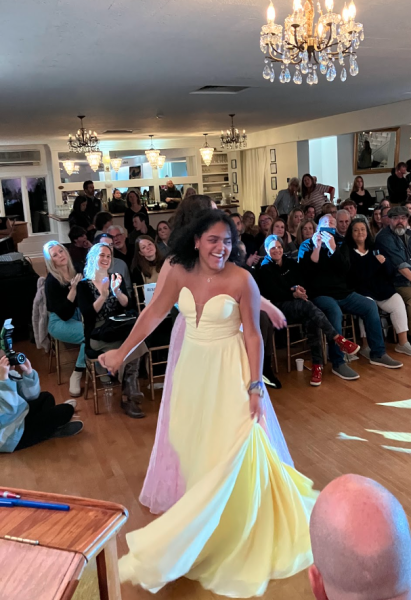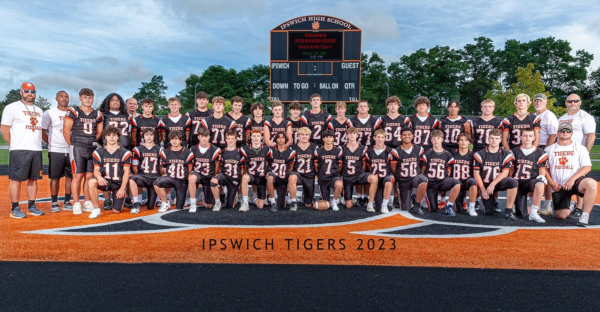Ipswich TIGERS Robotics: Part I
February 29, 2016
FIRST, it is the hardest fun you’ll ever have. It’s not just a robotics competition. It’s a community of students who work together with mentors to prepare themselves for careers in STEM (Science, Technology, Engineering, Math) fields. Ipswich High School competes at the highest level in this international organization: the FIRST Robotics Competition. FRC is a combination sport and technical challenge, a melding of different real life skills, like working with a team and planning and designing complex electronics, all making something special. As founder Dean Kamen says, “You don’t get quizzes and tests; you go into competitions and get trophies and letters.” The Ipswich TIGERS have a team: Technologically Inclined Group of Engineering Robotics Students. We are Team 5459.
FIRST (For the Inspiration and Recognition of Science and Technology) was founded in 1989 by inventor and entrepreneur Dean Kamen. Its goal: to inspire students to go into engineering and technology fields. FRC now has over 3,000 teams in 19 countries.
The FRC season starts in early January, when teams watch a livestream that introduces the year’s challenge and begin designing a robot to complete that challenge. Six weeks may seem like plenty of time, but it’s a real challenge to complete something as complicated as a robot in that time period. No components of the robot may be manufactured by the team before the start of the build season, and teams have to bag their robots at the end of the build season to ensure that they aren’t worked on after that time. Team 5459 meets five to six times per week during build season, even over vacation. This is a challenging schedule to keep up, but it is necessary to ensure that the robot is completed in the amount of time we have.
The name of this year’s challenge is FIRST Stronghold. I could go on for several paragraphs about every single rule there is in the competition, but the game boils down to this: robots grab large foam balls, transport them over various “defenses”, then shoot them into either a low or high goal. Opposing robots may interfere if they wish, but they can’t try to destroy your robot or pin you against an obstacle for a significant duration of time. The game is played by two alliances of three teams each. Each match begins with a 15-second autonomous period, where robots run preprogrammed code that makes them perform certain tasks, such as driving over obstacles and scoring in goals, that earn them many more points than the human-controlled, or teleoperated, period. This period continues for the rest of the two-and-a-half minute match. That’s when our drive team steps up to the controls and kicks the robot into gear, scoring points for the rest of the match. You can see the game reveal video to learn more.
Our robot this year, named Rook, is meant to successfully navigate under and over several defenses and shoot balls into the lower goal. It has a mecanum drive, so it can move straight sideways or diagonally. This robot will be competing at two District events, one in Reading and one at Boston University. These events have roughly 40-65 teams each. Events begin with qualifying matches, to determine a final seed that is used for alliance selection. Qualifiers have each team play with and against every single other team at least once, and each team plays at least 10 times.. After this comes alliance selection. The top 8 teams get to pick their two alliance partners from the rest of the field. Our Marketing Lead, Peyton Fitzgerald, has this to say about competitions: “It’s pretty cool what you see there. There’s a lot of people with like interests, all bent on trying to succeed while also trying to create a positive environment, and it gets reallly intense and it’s really cool.”
This structure allows two of the greatest assets of FIRST: ideals known as Gracious Professionalism and Coopertition. Gracious Professionalism simply means respecting and empathizing with other teams. If a rookie team has a barely functioning robot, you don’t mock them. You help them. This is Coopertition; teams compete, yes, but they also have to cooperate and help each other perform to the best of their abilities. The random nature of the qualifiers makes it advantageous for an experienced team to help out the rookies and get their robot functioning, as this will help them in a later match, though the concept is so ingrained in the FIRST community that one would never refuse to help a team that needed it.
Fundraising is an important part of our efforts, as it is very expensive to run this team. We are mostly privately funded, with major contributors being Analog Devices, Inc. and Lynx. Peyton Fitzgerald is our marketing lead, and I’m not sure what we would do without him. He manages our social media accounts and website, leading a team of several team members in an effort to expand our reach.
Stay tuned in a few weeks for an article on the results of our Reading competition.
You can visit our Facebook page or website for more information.
Or, if you are interested in becoming involved, whether as a student, a mentor, or a sponsor, you can email me at [email protected].

